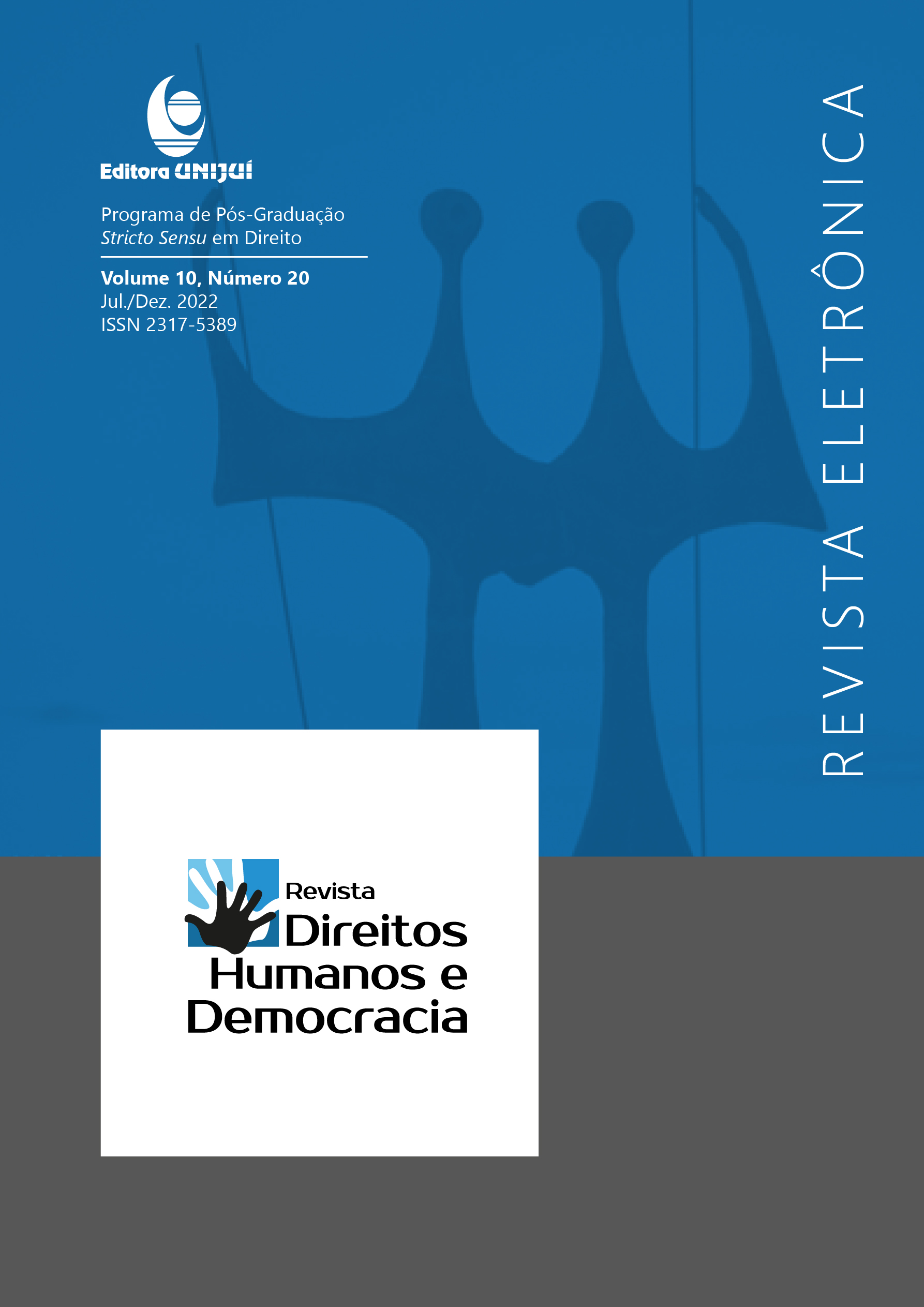30 Years of Mercosur: deepening the regional integration process and the development of Mercosur citizenship
DOI:
https://doi.org/10.21527/2317-5389.2022.20.12823Keywords:
Mercosur, Mercosur citizenship, Regional integration process, International cooperation, Human rigntsAbstract
The main objective of this scientific article is to assess the extent to which the deepening of the regional integration process of the Southern Common Market (Mercosur), with the adoption of guidelines of a social nature and the defense of human rights, contributes to the development of citizenship regional. The research problem is to find out whether, at present, there is a regional policy and a suitable normative apparatus to forge, within the scope of Mercosur, a concept of multilateral citizenship. After analyzing the Mercosur norms relevant to the topic under study, the social actions carried out in the bloc, as well as based on the theoretical bases addressed in the article, especially the lessons of Peter Häberle and Eligio Resta, it is inferred that it is a concept of regional citizenship in Mercosur is under construction, which is symbolized by the Mercosur Citizenship Statute, released in March 2021. The research undertaken is exploratory, with a hypothetical-deductive approach method. As for the procedures, the research is bibliographical and documentary.
Downloads
Published
How to Cite
Issue
Section
License
Copyright (c) 2022 Revista Direitos Humanos e Democracia

This work is licensed under a Creative Commons Attribution 4.0 International License.
By publishing in the Revista Direitos Humanos e Democracia, authors agree to the following terms:
Articles are licensed under the Creative Commons Atribuição 4.0 Internacional (CC BY 4.0), which allows:
Share — copy and redistribute the material in any medium or format;
Adapt — remix, transform, and build upon the material for any purpose, including commercial use.
These permissions are irrevocable, provided the following terms are respected:
Attribution — authors must be properly credited, with a link to the license and indication of any modifications made;
No additional restrictions — no legal or technological measures may be applied that restrict the use permitted by the license.
Notices:
The license does not apply to elements in the public domain or covered by legal exceptions.
The license does not grant all rights required for specific uses (e.g., image rights, privacy, or moral rights).
The journal is not responsible for opinions expressed in the articles, which remain the sole responsibility of the authors. The Editor, with the support of the Editorial Committee, reserves the right to suggest or request modifications when necessary.
Only original scientific articles presenting research results of interest, not previously published or simultaneously submitted to another journal with the same purpose, will be accepted.
References to trademarks or specific products are intended solely for identification purposes and do not imply any promotional endorsement by the authors or the journal.
License Agreement: Authors retain copyright over their articles and grant the Revista Direitos Humanos e Democracia the right of first publication.













